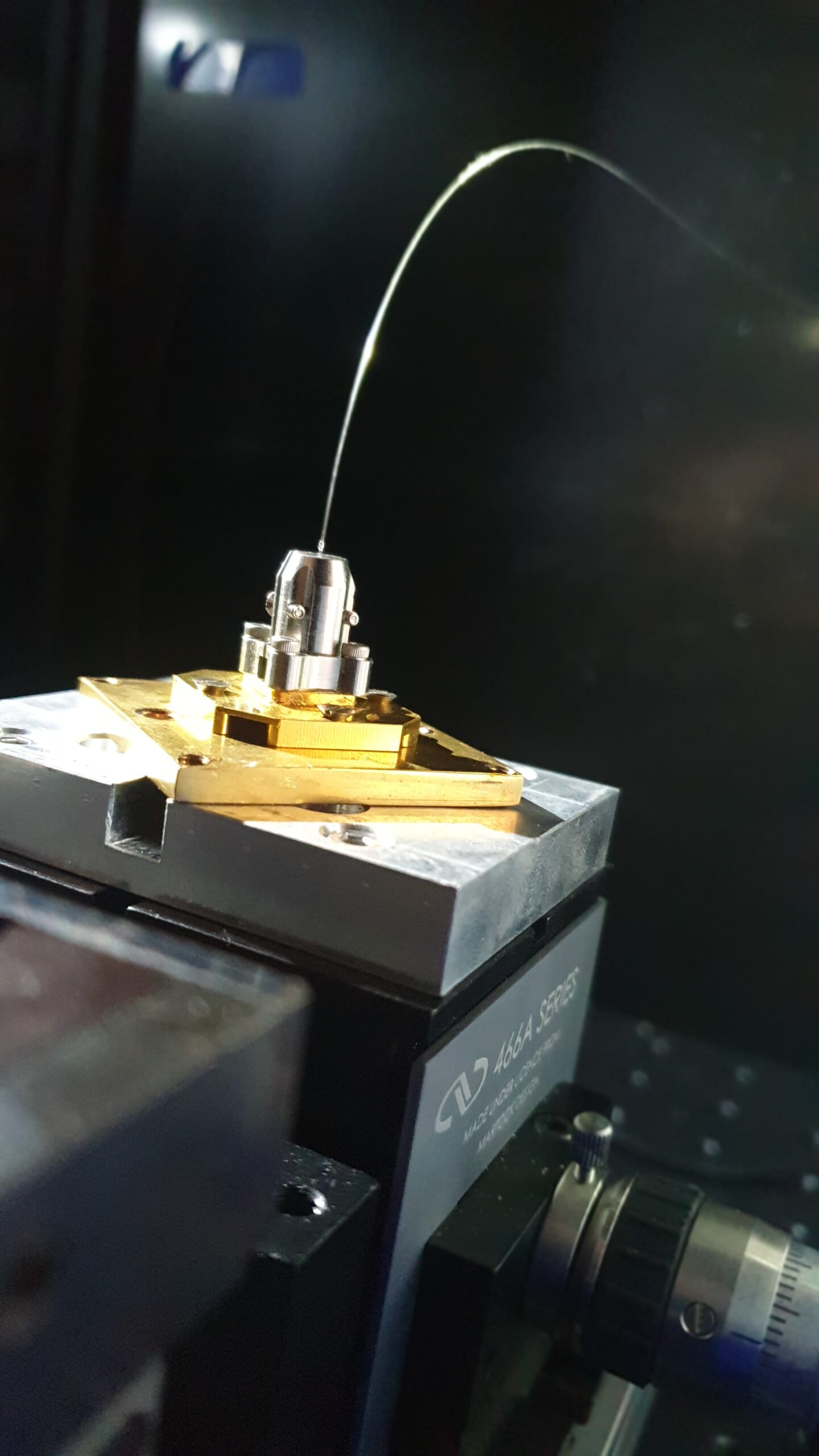Decoherence is a phenomenon where a quantum system loses its coherence, or quantum behavior, due to interactions with its environment. It’s the process by which the quantum nature of a system “leaks” into the surrounding environment, causing the system to behave more classically and lose its quantum superposition and entanglement properties. In quantum computing, decoherence primarily affects matter qubits. Managing decoherence is crucial for maintaining their quantum states and ensuring reliable quantum operations. On the other hand, decoherence is not a primary concern for photonic qubits. In quantum computers such as those developed by Quandela, photons don’t appreciably interact with their environment unless they are lost.
How Does Quantum Decoherence Work?
Decoherence can occur through the following mechanism:
- Environmental Interactions: Quantum systems interact with their surroundings (e.g., electromagnetic fields, thermal vibrations)
- Quantum Entanglement with Environment: The quantum system becomes entangled with environmental particles
- Loss of Quantum Information: The system’s quantum information spreads into the environment, becoming inaccessible
- Collapse of Quantum Superposition: The system’s quantum superposition collapses into a classical state
- Time-Dependent Process: The effects of decoherence accumulate over time
The Critical Impact of Decoherence in Quantum Computing
Decoherence is crucial in quantum computing for several reasons:
- Qubit Stability: It limits the time qubits can maintain their quantum states
- Quantum Error Rates: Decoherence is a primary source of errors in quantum computations with matter qubits
- Scalability Challenges: As quantum systems grow, managing decoherence becomes more difficult
- Quantum-Classical Boundary: It helps explain the transition from quantum to classical behavior
- Quantum Algorithm Performance: Without error correction, decoherence limits the complexity of implementable quantum algorithms
Strategies for Mitigating Quantum Decoherence
Here are some approaches used to combat decoherence in quantum systems:
- Quantum Error Correction Codes: Implementing schemes to detect and correct errors including those caused by decoherence
- Environmental Isolation: Using cryogenic temperatures and electromagnetic shielding
- Fast Quantum Operations: Performing quantum operations faster than the decoherence timescale
- Robust Qubit Designs: Developing qubits less susceptible to environmental noise
- Dynamical Decoupling: Applying sequences of pulses to “average out” environmental effects
Frequently Asked Questions About Quantum Decoherence
- Is quantum decoherence always harmful in quantum computing applications? While generally a challenge, controlled decoherence is sometimes used in quantum algorithms and quantum measurement processes. However, uncontrolled decoherence is a major obstacle to maintaining quantum states for computation.
- Can quantum decoherence ever be completely eliminated in practical quantum systems? Complete elimination of decoherence is theoretically impossible in open systems. However, its effects can be significantly reduced through various techniques, allowing for useful quantum computations. The goal is to extend coherence times long enough to perform meaningful quantum operations.
- What advantages do photonic systems have in terms of decoherence compared to other quantum computing platforms? Photonic systems, such as those we work with at Quandela, can often operate at room temperature and have naturally extremely long coherence times due to the weak interaction of photons with their environment. This can provide advantages in maintaining quantum states compared to some matter-based qubit systems.


